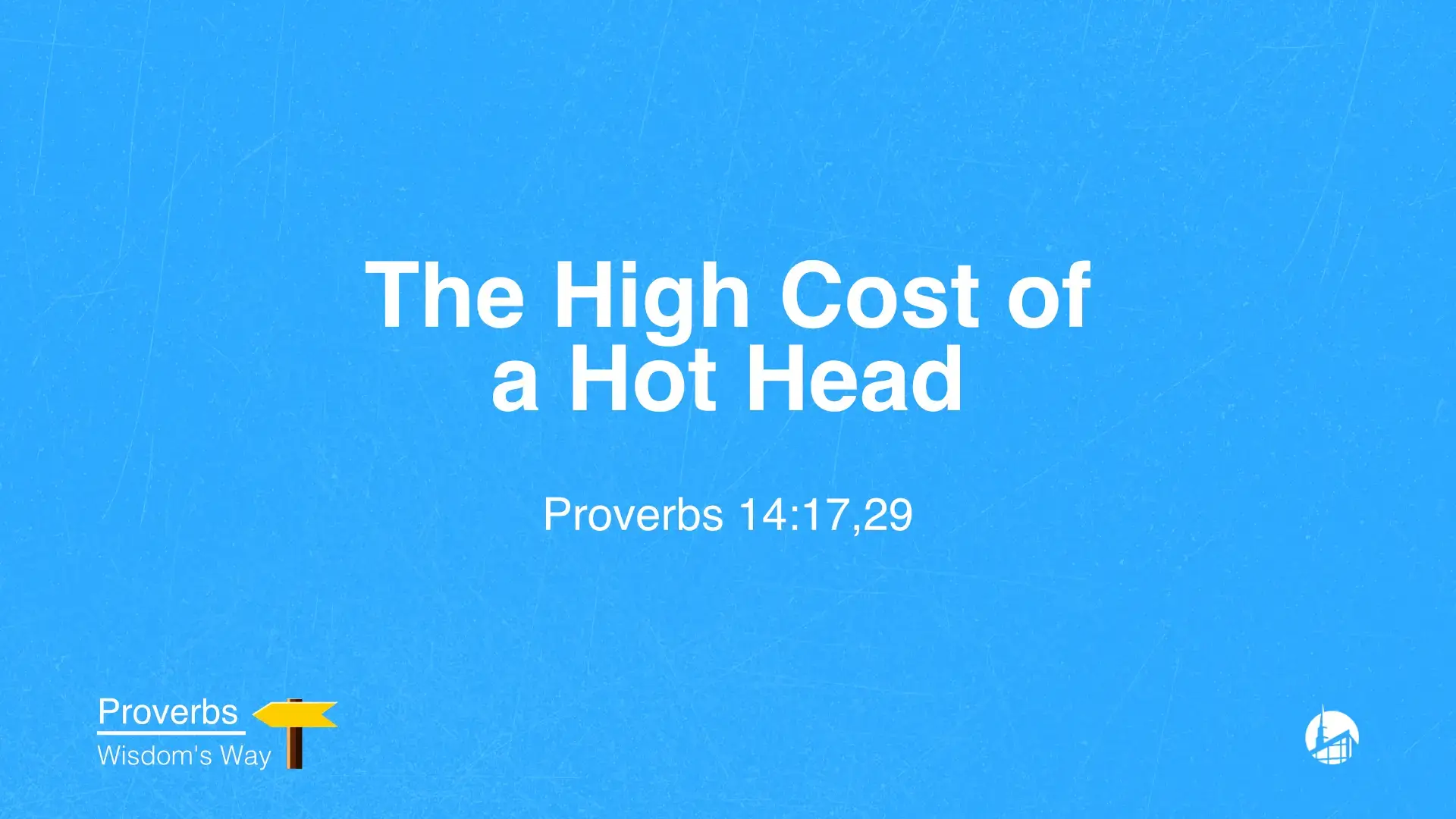Anger is a powerful emotion that can either spur us to righteous action or lead us down a path of destruction. In this sermon, Pastor Léveillé delves into the book of Proverbs to uncover the high cost of unchecked anger. Drawing from key passages, including Proverbs 14:17 and 29, we see that persistent anger is not a trivial matter but a heart issue with serious consequences. Through Scripture, we learn how to recognize anger’s dangers, understand its impact, control it with wisdom, and ultimately find transformation through the Holy Spirit.
The Nature of Anger: Persistent anger is not neutral; Scripture calls it foolish.
Proverbs teaches that persistent anger is not neutral; it is foolish and destructive. As Proverbs 14:17 states, “He that is soon angry dealeth foolishly: and a man of wicked devices is hated.” Anger, when quick and reckless, leads to poor decisions and sinful actions. Proverbs 29:11 reinforces this, saying, “A fool uttereth all his mind: but a wise man keepeth it in till afterwards.” Uncontrolled anger bursts forth without boundaries, causing strife and multiplying sins. Proverbs 15:18 warns, “A wrathful man stirreth up strife: but he that is slow to anger appeaseth strife.” Like a check engine light in a car, anger signals a deeper issue, whether external sin or internal struggles like pride or envy. Ignoring it allows it to fester, poisoning relationships and the soul.
The Consequences of Anger: Left unchecked, anger always leaves wreckage.
Left unchecked, anger always leaves wreckage in its wake. Proverbs 19:19 declares, “A man of great wrath shall suffer punishment: for if thou deliver him, yet thou must do it again.” Anger traps individuals in a cycle of poor choices and broken relationships, often requiring repeated rescue. Proverbs 22:24-25 advises, “Make no friendship with an angry man; and with a furious man thou shalt not go: Lest thou learn his ways, and get a snare to thy soul.” Anger is contagious, spreading conflict and corrupting those around it. Proverbs 30:33 illustrates this vividly: “Surely the churning of milk bringeth forth butter, and the wringing of the nose bringeth forth blood: so the forcing of wrath bringeth forth strife.” Persistent anger escalates into greater sins like hatred, jealousy, and division, as outlined in Galatians 5:19-21. It harms not only the angry person but also their relationships and witness for Christ.
The Control of Anger: Wisdom is seen not in venting, but I restraint.
Controlling anger requires wisdom and restraint, not venting. Proverbs 16:32 states, “He that is slow to anger is better than the mighty; and he that ruleth his spirit than he that taketh a city.” True strength lies in mastering one’s spirit, not in overpowering others. Proverbs 14:29 reinforces this: “He that is slow to wrath is of great understanding: but he that is hasty of spirit exalteth folly.” Wisdom begins with a heart that fears the Lord, fostering patience and perspective. Proverbs 15:1 adds, “A soft answer turneth away wrath: but grievous words stir up anger.” Kind words can defuse conflict, while harsh words fan the flames. Controlling anger is not about suppressing emotions but submitting them to the Holy Spirit’s guidance, allowing wisdom to prevail.
The Cure for Anger: The ultimate answer is not behaviour management, but heart transformation.
The ultimate answer to anger is not behavioral modification but heart transformation through the Holy Spirit. While techniques like counting to ten or taking a deep breath may calm the surface, they do not address the root. Colossians 3:8 commands, “But now ye also put off all these; anger, wrath, malice, blasphemy, filthy communication out of your mouth.” By memorizing Scripture and seeking the Spirit’s guidance, believers can address the underlying sins—pride, unforgiveness, or selfishness—that fuel anger. Galatians 5:22-23 describes the fruit of the Spirit: “But the fruit of the Spirit is love, joy, peace, longsuffering, gentleness, goodness, faith, Meekness, temperance: against such there is no law.” Only the Holy Spirit can replace wrath with peace, hatred with love, and anger with joy. This transformation requires daily surrender, allowing God to work within to produce lasting change.
Conclusion
Anger is like a dashboard warning light, signaling a deeper issue that demands attention. Proverbs reveals its destructive nature, its far-reaching consequences, and the wisdom required to control it. Yet, the true cure lies in heart transformation through the Holy Spirit. By seeking God’s wisdom, confessing underlying sins, and yielding to the Spirit’s control, we can overcome persistent anger and walk in the peace and joy of Christ. Let us pray, as the psalmist did, “Search me, O God, and know my heart: try me, and know my thoughts” (Psalm 139:23, KJV), trusting the Holy Spirit to reveal and heal the roots of our anger.












